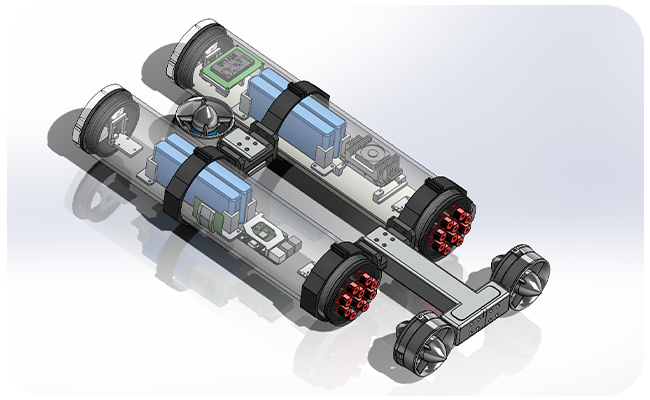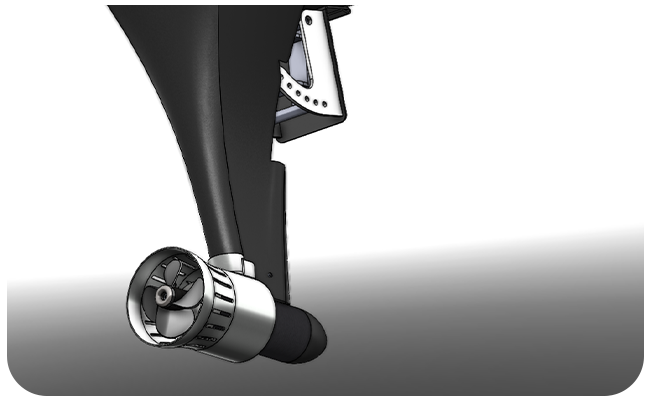As the IUCN World Conservation Congress 2025 calls for bold, inclusive solutions - particularly around Disruptive Innovation, Equity, and Transitioning to Nature-Positive Economies - venture building emerges as a powerful response from Africa’s coastal frontlines.
The ocean is the lifeline of coastal communities - a living, interconnected system that supports the ecological and economic resilience of millions across the continent. Yet these communities are also at the epicentre of the global climate crisis.
Despite contributing just 3–4% of global greenhouse gas emissions, Africa faces disproportionate climate impacts - from degraded coastlines and warming seas to declining fish stocks and growing vulnerability to storm surges and sea-level rise.
In the Mozambique Channel, small-scale fishers have seen their catch per unit effort drop by over 90% since the 1950s. In West Africa, 56% of coastlines are eroding or undergoing ecological degradation. These pressures threaten not only food security and traditional livelihoods, but also the ecological health of marine ecosystems.
But this crisis is also a moment of opportunity - a call for regenerative, community driven innovation.
What is venture building?
Venture building goes beyond startup support. It is a proactive, integrated approach to co-creating impact-driven businesses - from ideation through to market readiness.
Much like nurturing seedlings in a greenhouse, innovative ideas are protected, resourced, and strategically guided to take root and thrive. In the context of a regenerative Blue Economy, this model enables scalable, locally rooted solutions that restore ecosystems, sustain livelihoods and build long-term resilience.
Innovations from OceanHub Africa’s venture building studio
Launched in 2024, OceanHub Africa’s In-House Venture Building Studio represents a strategic evolution for Africa’s leading blue entrepreneurship support organisation. It was established to fill a critical gap – co-developing ocean-impact solutions where conventional innovation pipelines fall short, particularly for coastal communities.
The studio prototypes regenerative, low-tech innovations that can transform local livelihoods and ecosystems - before recruiting talent to bring them to market. Two pilot innovations now in development reflect the regenerative and inclusive vision of the Blue Economy.


1. Autonomous Underwater Vehicle (AUV) for community-based ocean monitoring
This underwater drone is being designed as an accessible, low-tech tool to democratise ocean-related data collection and use among small-scale fishing and coastal communities.
The AUV enables local stakeholders to map biodiversity, monitor illegal fishing, and track environmental changes – building climate resilience and restoring agency. At scale, it offers the potential to decentralise data monopolies and foster localised environmental intelligence systems that put decision-making power back in the hands of communities.

2. Solar-powered electric outboard engine prototype
This innovation offers a clean, cost-effective alternative to conventional fuel-powered outboard motors used by small fishing boats. Powered by solar energy, its simplified design uses fewer components than traditional engines, making it easier to maintain and repair – especially in remote coastal areas.
Beyond its practicality, the engine delivers substantial environmental and health benefits. It eliminates diesel leaks that harm marine life, reduces exposure to toxic exhaust, and lowers dependency on costly, often inaccessible fossil fuels. For small-scale fishers, it offers a sustainable, equitable and dignified path forward.

Aligning with the IUCN vision
Venture building is a powerful lever for transformational change - translating local innovation into regenerative solutions that restore ecosystems, empower communities, and redefine the Blue Economy from Africa’s coast outward.
This work also closely aligns with Motion 030, being considered at the IUCN Congress 2025, which defines the regenerative Blue Economy and calls for concrete action to implement its five founding principles. The innovations emerging from OceanHub Africa - from decentralised data systems to low-carbon livelihood tools - represent grounded, scalable examples of these principles in action.
It is not just a tool for innovation, but a systemic strategy – one that unites conservation and entrepreneurship to build a resilient, nature-positive future anchored in equity, agency, and long-term planetary health.